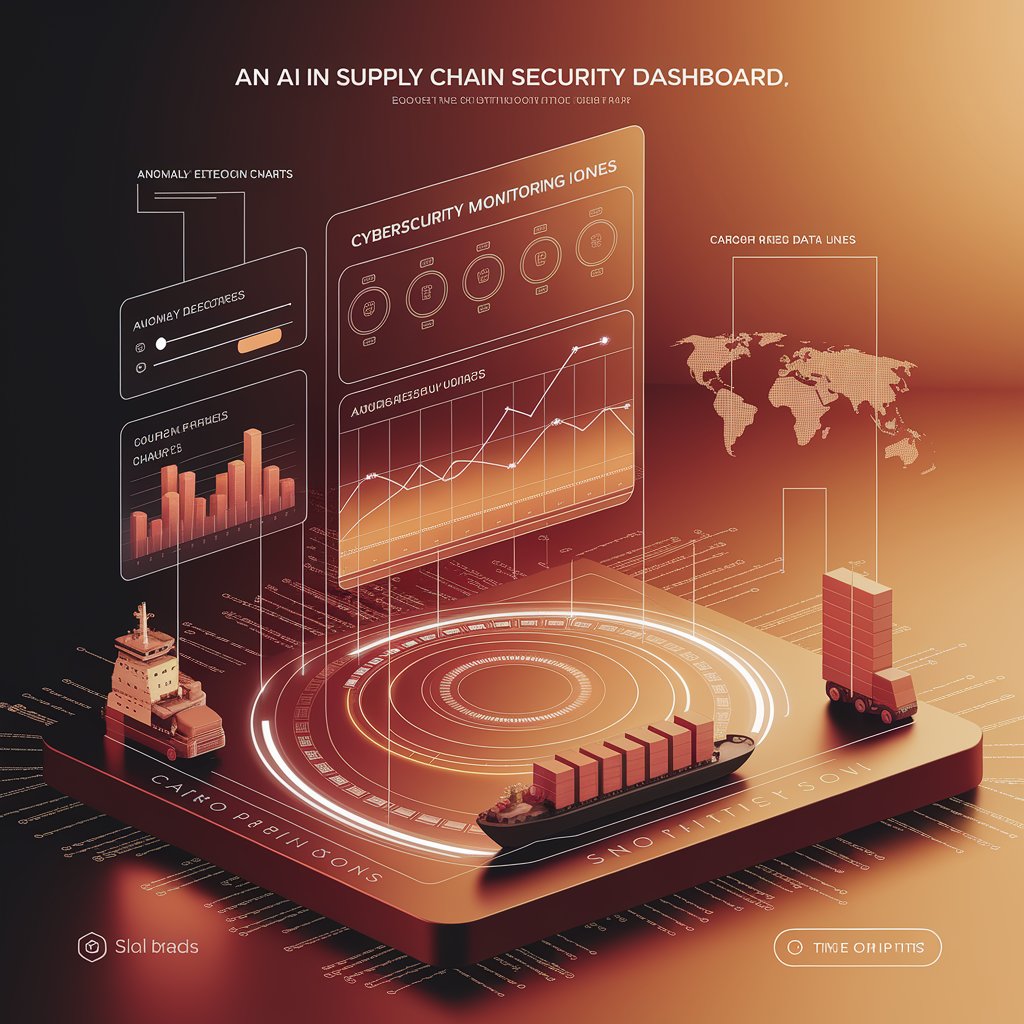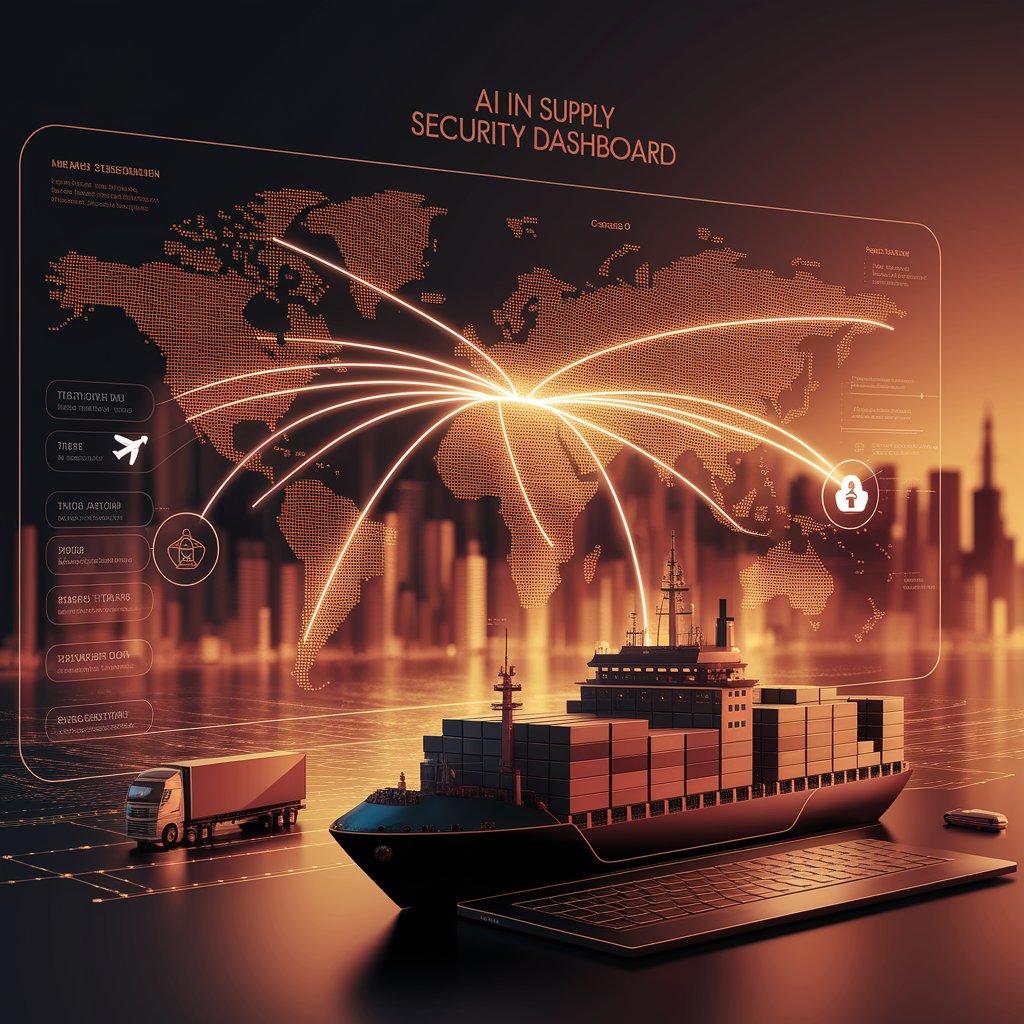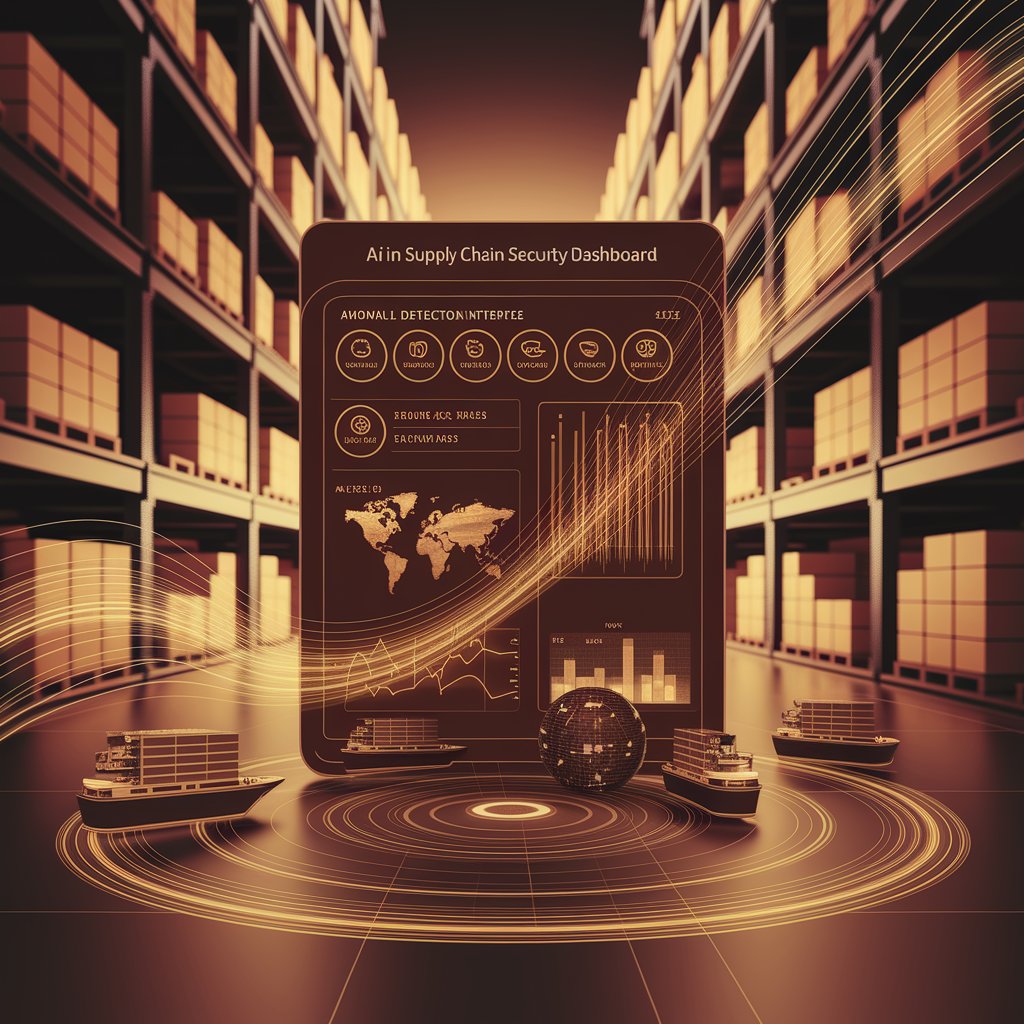AI in Supply Chain Security: Protecting Global Trade with Intelligent Monitoring

Introduction
Traditional security methods often rely on reactive measures and fragmented monitoring. But with AI in supply chain security, companies can move from reactive defense to proactive protection—using predictive analytics, anomaly detection, and intelligent monitoring to identify threats before they cause disruption.
What Is AI in Supply Chain Security?
AI in supply chain security refers to the use of artificial intelligence, machine learning, and big data analytics to identify, prevent, and respond to risks within global logistics networks. By analyzing large volumes of data from shipments, IoT devices, and partner systems, AI provides real-time insights and early warnings.
AI strengthens security by:
- Detecting unusual shipment patterns
- Identifying counterfeit or tampered goods
- Predicting risks from geopolitical or weather events
- Monitoring cybersecurity threats in logistics platforms
- Automating compliance validation across borders

Key Features of AI in Supply Chain Security
- Anomaly Detection – Identifies unusual cargo routes, delays, or document inconsistencies.
- Predictive Risk Analytics – Forecasts disruptions before they escalate.
- IoT & Sensor Integration – Tracks cargo conditions, tampering, and location.
- Cybersecurity Monitoring – AI detects intrusions in logistics IT systems.
- Compliance Automation – Ensures adherence to customs and trade regulations.
- Incident Response Automation – Provides real-time alerts and recommended actions.
Benefits of AI in Supply Chain Security 📈
- Risk Mitigation – Proactively prevent theft, fraud, and cyber threats.
- Improved Compliance – Automates global trade rule validation.
- Operational Continuity – Reduce downtime from disruptions.
- Customer Trust – Strengthen confidence with secure, transparent operations.
- Cost Savings – Minimize losses from theft, penalties, and delays.
- Resilience – Build stronger, more adaptive global supply chains.

Real-World Applications
- Pharmaceutical Logistics – Protect sensitive medical cargo from theft or tampering.
- Luxury Goods Supply Chains – Detect counterfeit products in transit.
- Ports & Terminals – Monitor cybersecurity threats against critical infrastructure.
- E-commerce Logistics – Safeguard customer data and delivery flows.
- Global Shippers – Automate compliance for multi-country shipments.
Challenges of Using AI in Supply Chain Security
- Data Privacy Concerns – Handling sensitive cargo and customer data securely.
- Integration with Legacy Systems – Older ERP/TMS platforms may not support AI.
- High Implementation Costs – AI and IoT infrastructure require upfront investment.
- False Positives – AI may trigger unnecessary alerts if not trained properly.
- Cybersecurity Risks – AI platforms themselves may become hacking targets.

Best Practices for Success
- Prioritize High-Risk Areas – Focus AI monitoring on vulnerable trade lanes.
- Integrate Across Platforms – Connect AI with ERP, WMS, TMS, and customs systems.
- Strengthen Data Quality – Ensure clean, consistent inputs for accurate insights.
- Adopt Layered Security – Combine AI with physical and digital safeguards.
- Train Teams – Educate staff on interpreting AI alerts and taking corrective action.
- Track ROI – Measure cost savings and reduced incidents over time.
The Future of AI in Supply Chain Security 🚀
- AI-Powered Digital Twins – Simulating supply chain risks in real time.
- Blockchain + AI Security – Tamper-proof cargo tracking and authentication.
- Autonomous Risk Management – AI systems acting on threats without human input.
- Quantum-Enhanced Security – Stronger encryption and predictive capabilities.
- Sustainability & Security Alignment – AI balancing green initiatives with safe trade flows.
Conclusion
AI in supply chain security is shifting logistics from reactive defense to proactive protection. By combining predictive analytics, anomaly detection, and real-time monitoring, businesses can safeguard cargo, ensure compliance, and build resilience against growing risks.
For global shippers, freight forwarders, and logistics providers, adopting AI in supply chain security is not just about safety—it’s about building trust and ensuring the continuity of global trade.
